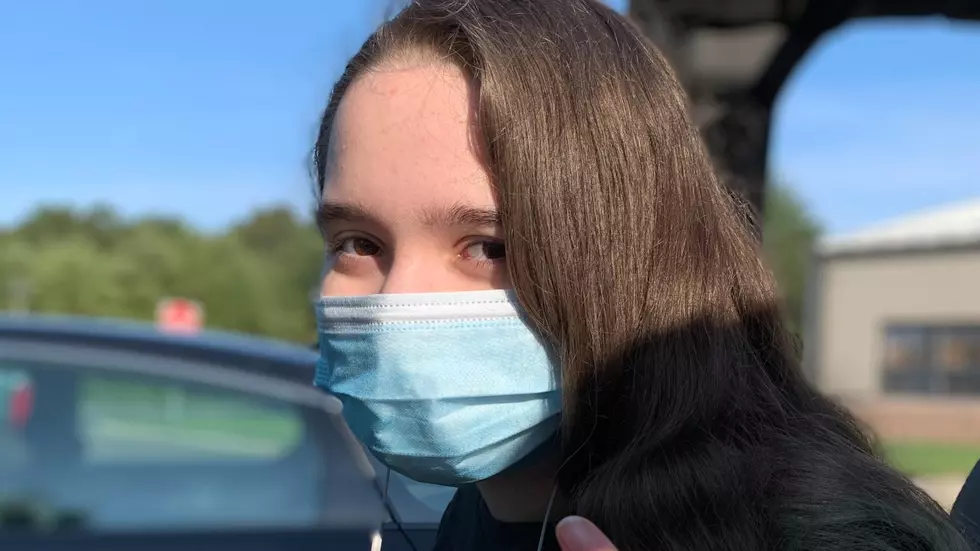
More youngsters seeking mental-health treatment due to COVID-19
Because she had been battling anxiety long before COVID-19 started dismantling normal life, 13-year-old Lyric Keyer is in constant contact with counselors at her transitional school.
She attends five days a week — that's one reason, according to her father Mark Keyer, Lyric is managing the pandemic as well as she can.
"She does experience anxiety from some of the things that are taking place," Keyer, of Laurel Springs, told New Jersey 101.5. "She's probably been a little more discouraged than previously. That, on top of the fear of what's being explained out there — there's obviously that fear that she might get COVID, or a grandparent of her friend might get it so that's why she can't go associate with her friend."
Professionals throughout New Jersey were bracing from the onset of the public health emergency for a surge in the number of residents experiencing mental health issues. Many minors in New Jersey likely viewed the start of the pandemic as an extended spring break, but weeks turned into months, and in early 2021, New Jersey remains knee-deep in the crisis.
"I think that one thing to keep in mind is that mental health problems for kids and adolescents was already a public health crisis," said Jeff Selman, vice president of clinical services at Cherry Hill-based First Children Services. "Here we have a situation that has exacerbated what was already a big problem."
First Children Services, which provides behavioral health services throughout New Jersey and Pennsylvania, and runs the transitional school attended by Lyric, "can not field calls fast enough for kids who are in crisis," according to Selman.
"And kids who are more vulnerable ... those kids who already have anxiety, they are presenting with heightened mental health challenges," Selman said. "Kids do well when there's structure, there's routine, there's predictability. And what this pandemic has shown is anything but that."
Selman noted schools have historically been a place where children can access mental health services.
But week-long in-person instruction is a rarity in the Garden State because of COVID-19 concerns. According to Keyer, parents might be in the best position right now to pick up on potential issues.
"This pandemic, as bad as it's been, I think has definitely created opportunities to have conversations with your kids, and to just really listen to hear where they are," Keyer said.
According to the Centers for Disease Control and Prevention, emergency department visits for mental health reasons shot up by 31% in 2020 among children aged 12 to 17, compared to the year prior, as of October 2020. Mental health-related emergency visits also jumped 24% from 2019 to 2020 among kids aged 5 to 11.
To properly communicate with a child and make progress with care, most times professionals must be in communication with their parents or a caregiver as well, according to Steven Tobias, director of the Center for Child & Family Development in Morristown.
"What I'm finding is that a lot of my old clients who were doing OK, who were stabilized, are coming back," Tobias said. "Because the thing is that stress is cumulative, it builds and builds."
There are plenty of children who have a "natural resilience," Tobias noted — and before the pandemic, many kids' social lives had migrated online anyway.
"For some kids, this hasn't really created a big change in how they communicate or their connection to their peers," he said. "Other kids, they feel more lonely, they feel more isolated, they miss that contact — especially for kids that are not going to school, I think that makes a big difference."
At the same time, Tobias added, certain kids' stress levels may actually be reduced because there are fewer demands on them in terms of schooling and other activities such as sports.
"Even though we're having more difficulty coping with this now, I think once we are through it and once kids see that they can deal with a very difficult situation, I think that's going to help them deal with what other future challenges and difficulties they're going to face," he said.

Where to get COVID-19 vaccine in NJ
More From Beach Radio










